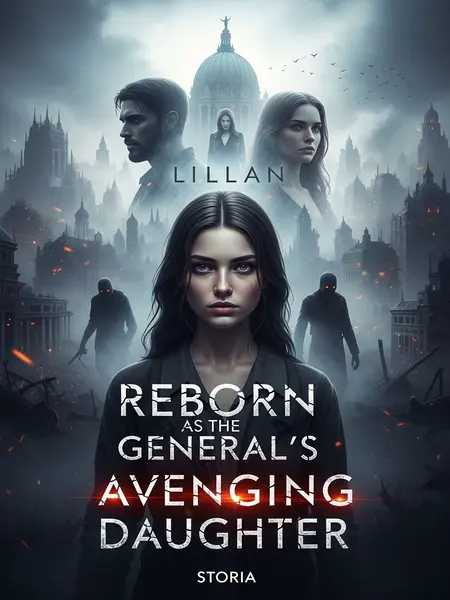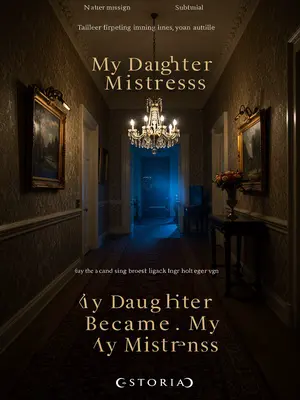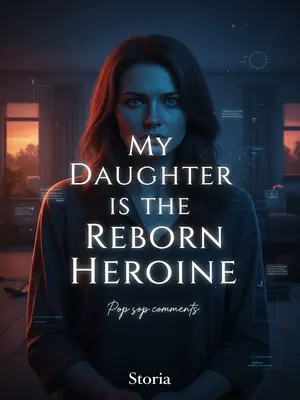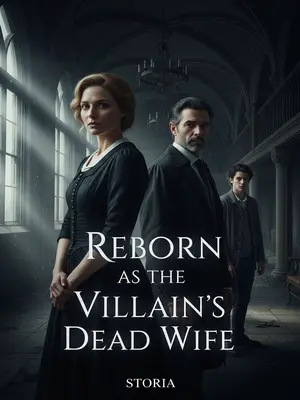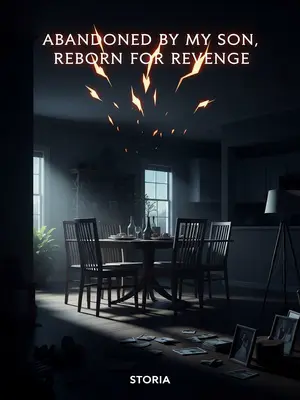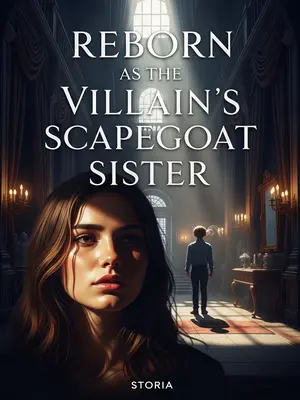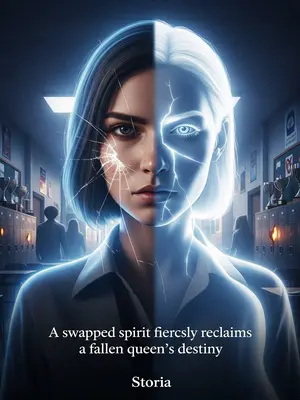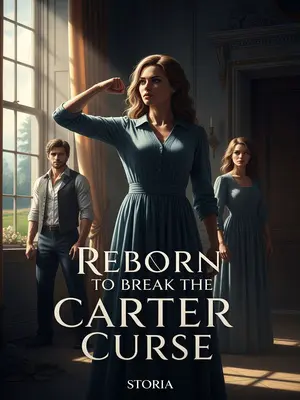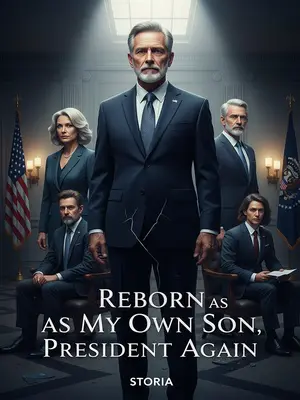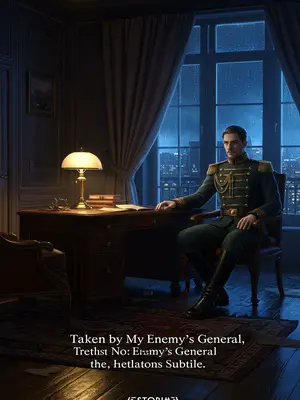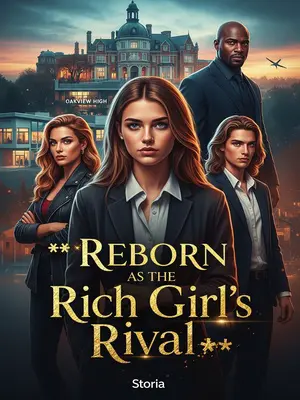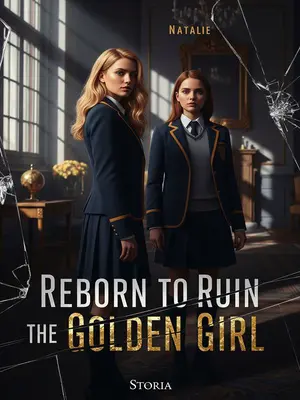Chapter 2: A Ghost's Unfinished Business
I’ve forgotten how long I’ve been dead.
Sometimes it felt like the world spun on without me—a new president, new pop songs, the cemetery filling with names I never knew. At dusk, I’d try to remember the sound of my own laughter, but it slipped away like fog.
The memories from my life faded more and more. I only remembered my name—Lillian Lee—and nothing else.
Lillian Lee: two names on a weathered stone. Sometimes, on summer nights, I’d listen to the crickets and wonder if anyone remembered me at all.
I lay on my grave, soaking up the moonlight.
There was comfort in it—the cool glow painting the grass silver, the distant hum of traffic from the interstate. Sometimes, I could almost feel the night breeze, hear faint music from a house party nearby.
The Reaper appeared quietly at my side, lying down next to me.
He never made a sound, just shimmered into existence, looking out over the headstones as if he could see every story they held.
"Ma’am, have you decided which family you want to be reborn into?"
He said it like a waiter taking an order, but I could hear the impatience under his polite tone.
When I didn’t answer, the Reaper grew anxious. "Your time to move on has come; if you wait any longer, it’ll be bad for both you and others."
He fiddled with his pocket watch, glancing at me with a nervous twitch. “We can’t have any more ghosts lingering. It’s against the rules, you know.”
"I have a few good families here—why don’t you pick one?"
He handed me a clipboard with a list of names. They were clean, American names—Smiths, Garcias, Chos, O’Connors—families who probably had picket fences and game nights.
The Reaper said I’d done a lot of good in my life, and after death, people built a memorial for me, and I received their prayers.
So I could choose my parents for my next life.
It was supposed to be an honor, but it felt more like a burden. Who wants to start over with strangers?
I turned over, my back to the Reaper.
No matter how much he talked, I never said a word.
There must have been something weighing on my heart, making me unwilling to move on.
The silence between us was heavy as a storm cloud. The Reaper sighed, frustration written all over his face. He had somewhere else to be, I could tell.
The Reaper left in a huff. As soon as he was gone, the little girl who thought I was her mom came.
She always timed it perfectly—right when the night quieted down, when the cemetery felt most lonely. I’d hear her sneakers crunching on the gravel before I ever saw her.
Three months ago, a group of people came to my grave.
They wore somber clothes, stood in a careful circle, and spoke in hushed tones. I watched from above, curious and detached, as they performed their ritual.
They placed an empty casket atop my own.
The coffin was lacquered mahogany, way too new for this part of the graveyard. They lowered it, pausing for prayers that seemed to vanish into the chilly morning air.
Since that day, a girl of twelve or thirteen came to pay her respects every few days.
She never missed a visit, rain or shine. I’d see her hunched against the wind, clutching flowers wrapped in grocery bags.
She called my grave 'Mom,' placing each bouquet and offering in front of my headstone.
She whispered some white lies.
She’d say, "Mom, your daughter is doing just fine at home. You don’t need to worry about me."
Her voice always wavered a bit at the end, like she was trying to convince herself more than anyone else. Sometimes, she’d force a laugh, but it always came out brittle.
But she was clearly not okay. On her exposed wrist were lots of bruises.
I saw the bruises—purple and yellow, like watercolor smudges gone wrong. No one else seemed to notice—not the adults, not the teachers, not even the other kids.
It was obvious she’d been hurt. How could she be okay?
I wanted to scream at the world: someone, help her! But all I could do was watch, helpless, invisible.
She also asked, "Mom, are you cold down there? Do you have enough to eat?"
Sometimes she’d press her cheek to the marble, whispering as if she might hear a reply. “Did you like the apple slices? I put extra cinnamon this time, just how you used to make them…”
I thought, little girl, you should worry about yourself.
If only I could tell her to bundle up, to eat something hot, to go home before dark. The wind rattled the empty snack wrappers, and I felt something like guilt simmer in my chest.
In the chilly spring, she wore only a thin hoodie. Her small hands were red from the cold, her face pale as paper.
Every time she shivered, I remembered what it was like to be alive—to feel cold, to ache for comfort. Her fingers fumbled with the zipper, but she never complained.
Her body was so frail a gust of wind could knock her over. If her mom were really buried here, seeing her like this would break her heart.
The cemetery felt too big for such a tiny figure. I imagined her mother’s ghost—if she could see her daughter now—sobbing right beside me.
Thinking of this, I got inexplicably irritated, my heart twisted up.
It was the kind of frustration that makes you want to punch a wall, but I had no hands, no voice, no way to intervene.
Something wanted to break out of my mind, but no matter how I tried, it wouldn’t come.
A memory on the tip of my tongue, a forgotten name, a sense of purpose slipping further away each day.
I floated above the grave, basking in the sunlight and enjoying the snacks she brought.
A Snickers bar, a pack of sour gummy worms, even a stale donut from the corner bakery. It didn’t matter that I couldn’t really taste them. It was the thought behind the gifts, the love in every offering, that filled me more than food ever could.
The biggest difference between me and other ghosts is that I can appear in daylight and show myself among the living.
Sometimes, I’d watch the groundskeeper’s dog chase squirrels, or listen to teenagers gossip as they cut through the cemetery on their way home. It made me feel almost alive again, like part of the world.
After eating my fill, the little girl reluctantly looked at my grave, hoarsely saying goodbye.
"Mom... be well down there. I’ll come see you again soon. If there’s anything you want or need, show up in my dreams... next time I’ll bring it for you..."
Her voice was barely more than a whisper, lost in the breeze. She lingered, as if hoping for a sign.
As she spoke, her eyes turned red. She sniffled and whispered, "Mom, I miss you. Come see me in my dreams..."
I watched her shoulders shake, felt her loneliness echo through me. There’s a special kind of heartbreak in watching someone grieve for a ghost.
Seeing her tearful eyes, my heart hurt with every beat.
It was a strange pain—one I hadn’t felt in years, sharp and aching, like a memory you can’t shake.
It seemed like I’d seen this scene before.
A child, lost in a cemetery, searching for something she could never find. A scene playing out over and over through the decades, different faces, the same sorrow.
I couldn’t help but call out to her as she turned to leave.
"Don’t go."
My words hung in the air, startling even myself. For the first time in ages, I wanted—needed—her to stay.
